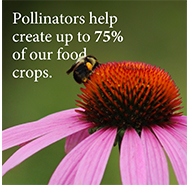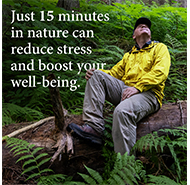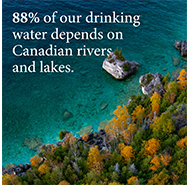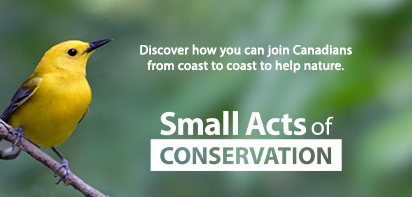Nature makes it possible
Nature is, and always has been, the answer. It sustains us. It is resilient. It has the power to heal and inspire. It has always been the key to a thriving world.
Nature provides for us. Wetlands filter and purify the water we drink. Fertile soils make it possible to grow the food we eat. Plants clean the air and supply the oxygen we breathe. Nature enriches our lives, giving us spaces to hike, paddle and swim. And that time in nature makes us happier.
Today, we need nature more than ever. That’s because life on Earth has changed. The world is facing a crisis of climate change and species loss that threatens our way of life — and our future. But once again, nature gives us hope.
Together, we can unlock nature’s power, so life can thrive
It’s never been about one tree, one creek, or one person. We know the power of coming together is what allows us to create real, tangible change.
Join our online community to learn about what you can do for nature!
Join our online community
Nature makes all kinds of things possible

All kinds of crops depend on Canada’s wild pollinators. So do the millions of people they feed. By enhancing the habitat that pollinators need, we’re protecting its ability to care for people and communities.
Read more

Do birdsongs and twinkling fireflies give you warm, fuzzy feelings? There’s a good reason why. Evidence shows that connecting with nature boosts your well-being in more than 200 different ways — from reducing anxiety to strengthening friendships.
Read more

Let’s raise a glass to freshwater ecosystems! Safeguarding lakes, rivers and wetlands doesn’t just help fish and frogs. It buffers us from floods. It soaks up planet-warming carbon. And it protects the drinking water we all depend on — daily.
Discover more
You can make it possible!
When you come together with other nature lovers, you can protect nature and champion its amazing ability to care for people and communities.
Ready to rise to the challenge? Join our online community to learn about what you can do for nature!
Sign up today!
References:
- IPBES. (2016). Summary for policymakers of the assessment report of the Intergovernmental Science-Policy Platform on Biodiversity and Ecosystem Services on pollinators, pollination, and food production. https://doi.org/10.5281/zenodo.2616458
- Meredith, G. R., et al. (2020). Minimum time dose in nature to positively impact the mental health of college-aged students, and how to measure it: A scoping review. Frontiers in Psychology, 10, Article 2942. https://doi.org/10.3389/fpsyg.2019.02942
- Neill, C., et al. (2019). Nature contact and mood benefits: Contact duration and mood type. The Journal of Positive Psychology, 14(6), 756–767. https://doi.org/10.1080/17439760.2018.1557242
- Statistics Canada. (2021). Survey of Drinking Water Plants. https://www150.statcan.gc.ca/n1/daily-quotidien/231114/dq231114d-eng.htm




